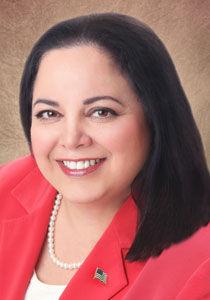A federal judge last week signed a protective order restricting Sylvia Atkinson, her attorneys, and government prosecutors from making certain statements outside the court concerning her federal bribery case pending trial.
The protective order was filed on Friday following a motion hearing that was closed to the public.
Under the terms of the order, extrajudicial statements that create the risk of prejudice include “statements concerning the nature of the evidence, views and opinions about specific allegations or possible evidence supporting specific allegations, views about the identities of possible witnesses, or statements about the character of the Defendant or the motives of the Government in the prosecution.”
The order is binding on Atkinson, her counsel, counsel for the government, as well as individuals employed or controlled by Atkinson, her counsel, or the government’s counsel.
The court found that the dissemination of certain information to the public may prejudice Atkinson’s right to a fair trial before an impartial jury. In the order, Rodriguez wrote that the “local community and local media have demonstrated an interest in this case that is significantly greater than in a typical criminal proceeding.”
As Atkinson is an elected official, local media has followed the case closely. She is the former vice president of the Brownsville Independent School District Board of Trustees, on which she still serves, and a former Texas Southmost College employee who faces eight counts including conspiracy, bribery concerning programs receiving federal funds, and violation of the Travel Act-State Bribery Law.
An indictment handed down by a federal grand jury in December accused Atkinson of soliciting and accepting a $10,000 bribe from an undercover FBI agent posing as an employee of local film production and advertising company Pink Ape Media. She has pleaded not guilty to the charges.
“These rights and interests can be prejudiced if the jury pool and witnesses read or hear certain information through the press, social media, and other forms of communication. For example, the communications could include what amounts to inadmissible evidence,” Rodriguez wrote in the order.
“The exclusion at trial of that information will be rendered meaningless if the press and community have disseminated the information to the jury pool and witnesses.”
Additionally, Rodriguez stated that certain information communicated to witnesses directly or indirectly could affect their testimony at trial.
Specifically, the order prohibits “extrajudicial statements concerning any materials provided in discovery; the character, credibility, reputation, or criminal record of a party or witness, and the expected testimony of a party or witness; any matter that a party knows or reasonably should know will be inadmissible at trial.”
According to the order, it is not a violation for Atkinson or her attorneys to make statements expressing her innocence, for the government’s counsel to express confidence in prevailing at trial, for counsel for either party to make a statement repeating information already in the public record, or to make statements about logistical or scheduling matters.
Failure to comply with the order may result in a finding of contempt of court, the document stated.




